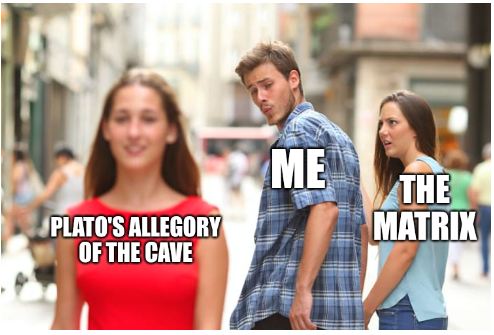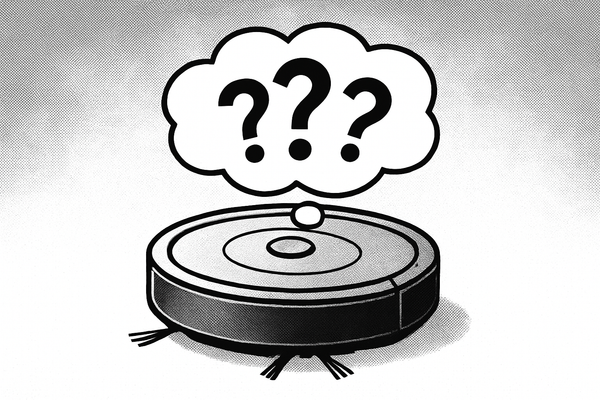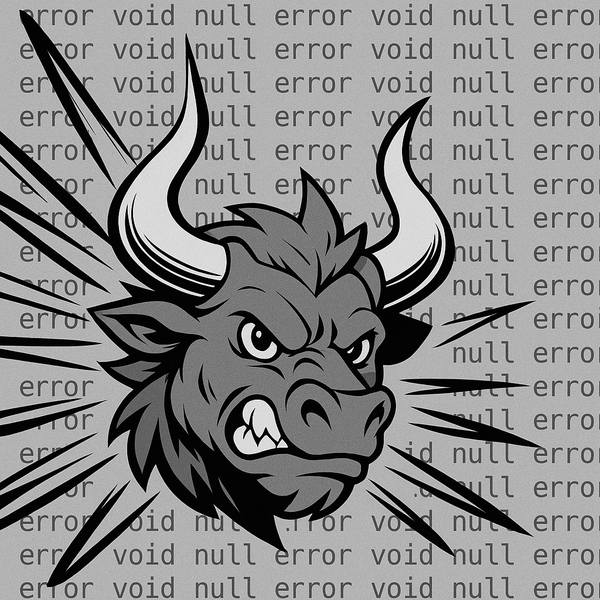Thinking with Tools and Tiles
Or 'Expansion Packs for the Mind'
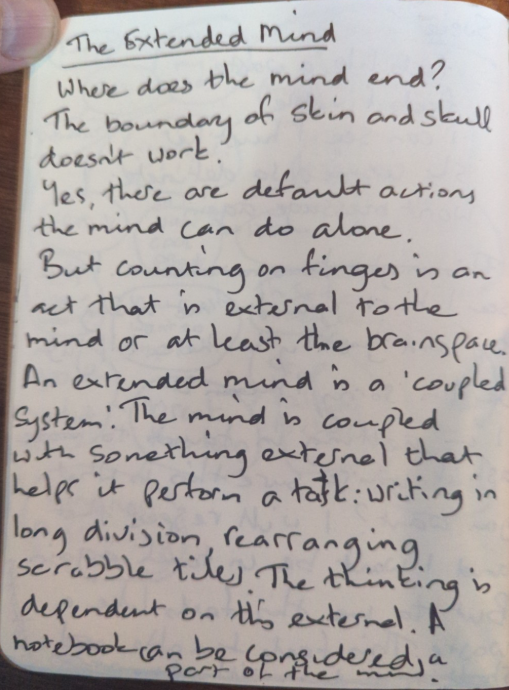
Thinking doesn’t just happen inside the brain.
Thinking also happens when we interact with what’s outside our heads.
That’s my takeaway from Clarke and Chalmers’ paper: ‘The Extended Mind’.
We count on our fingers to help us think about numbers. OK, we’re outside of our heads but that's still the body, still a part of us.
Then what about Scrabble players rearranging tiles to help them find higher scoring words? The fingers and tiles are crucial to the act of thinking. They aren’t separate from the mind, they’re a part of it.
I have several notebooks. I store ideas in them and then access them later. That’s not materially different from how I use my mind. If I ‘know’ something, I retrieve it from storage when I need it.
Does it matter if the medium is my mind or something external like a notebook? It’s all the same action: I go to the place it is stored and surface it.
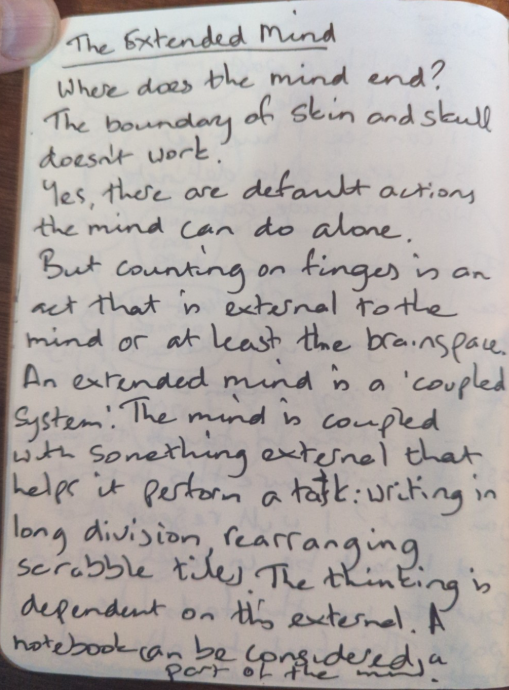
Likewise, developing a piece of writing with an AI such as ChatGPT. I’m using it as an extension to my thinking. I show it how to think with me.
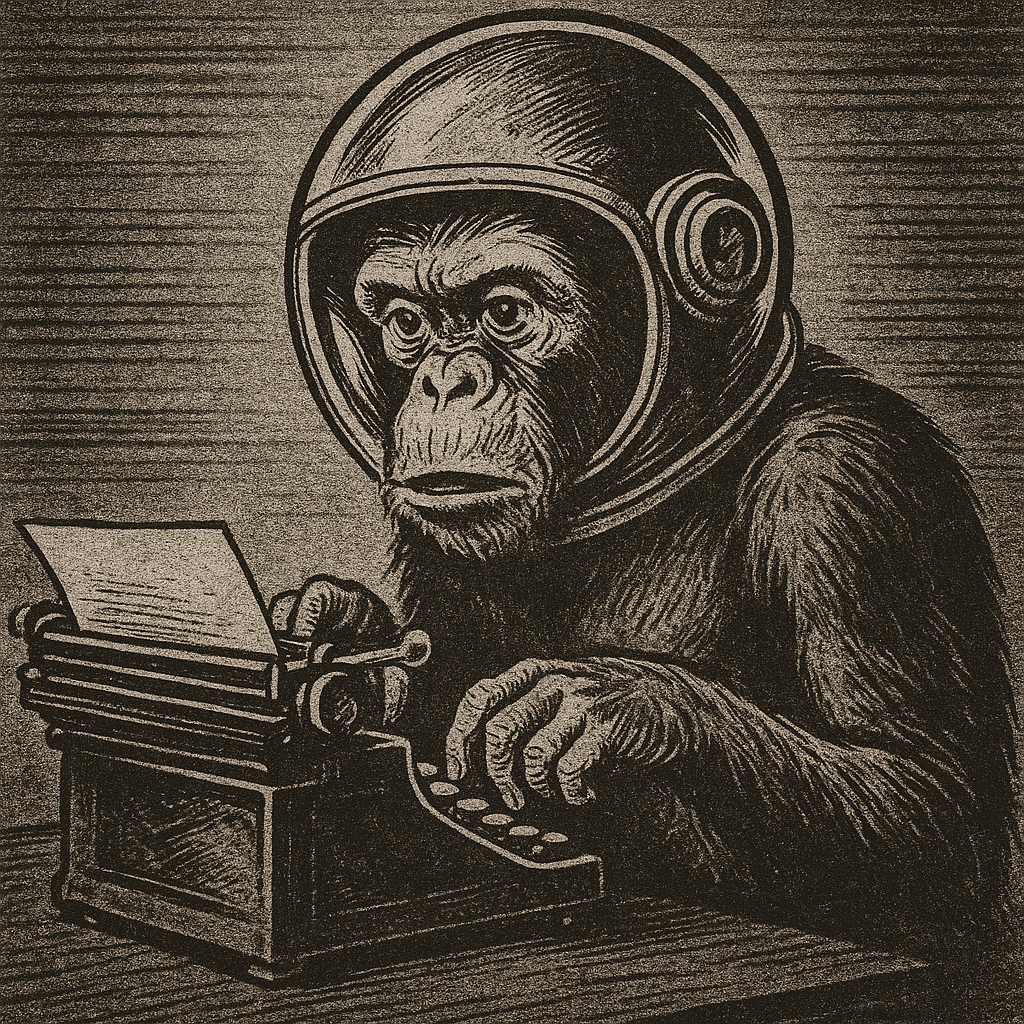
It also works the other way around. Our minds connect to our external environment and get shaped by that action. Walking along a main road at 8AM forces me to shut out noise, watch for cars, and wonder if anyone likes commuting. The environment is shaping my thoughts.
When you realise this, your surroundings become incredibly important to you.
I live in the centre of Manchester. When I first moved here, the tradeoff between the noise, rubbish, restlessness and proximity to ‘Everything’ felt worthwhile.
Recently, I’ve started to feel under psychic attack every time I look at the Manchester skyline with its blank eyeless towers that have seemingly been dropped at random.
My mind is being forced to couple with this entity that actively disrupts my thought processes, sending them places I don’t want to go.
Your mind is a distributed system. It has some native functionality but it can also connect to, and combine with, external elements to produce thinking. Your mind, an abacus, a paper and a pen all become core elements in your thinking system.
The results you get depend on the elements in the process. So you should select them with care.
I used to wonder why people got so hung up about the choice of pens and paper when embarking on studies or a creative venture. Now it’s obvious to me that the choice of tools is essential. Of course you must select the items that will combine best with your mind to produce the desired thoughts.
An ex read my journal. Aside from the privacy violation, I felt there was something else about this that was very wrong, but I couldn’t name it.
However, if I think of my journal as an extension of my mind, then by reading the journal, they walked uninvited through my internal world, looking at all the things that were not theirs to see: my half-formed thoughts, the rants, the ‘showing my working out’, alternative personalities I was just trying on for size in the privacy of my own space.
I never used that journal again. I had to start a new one. I don’t think I’ve ever gone back to read or reference the thoughts in there. They’ve been tainted by someone else’s touch. I had to amputate the corrupted mind and cut it off completely.
AI is the extended mind writ large. We are already used to delegating brainspace to the machines: calendars, reminders, lists, contact details. AI takes it to the next level with an extended mind that appears to think along with you. It can use words to convey ideas. Unlike the morning traffic, it responds when you express your thoughts.
Use AI for the things you don’t yet know. The thoughts you can’t yet think.
When you incorporate AI into your thinking system, ask the AI to be critical, yet kind. Demand that it asks questions about what’s missing from your thoughts and what the alternative viewpoints could be.
Cast it as an expert of a subject you don’t know enough about. It’s like plugging an expansion pack into your mind. You’ve now added SEO Expert, pet whisperer, data analyst to your thought processes.
Some people argue that because notebooks can be lost or that AI can be switched off, they are not part of an extended mind, but that doesn’t work for me.
Minds can break too. You could have an accident that causes memory loss or irrevocably damages a part of your brain and impairs thought processes causing you to lose ideas, thoughts, beliefs.
So, your mind is anything you think with.
Thanks for reading! Subscribe for free to receive new posts and support my work.


